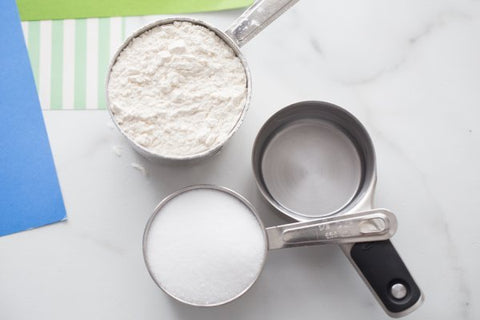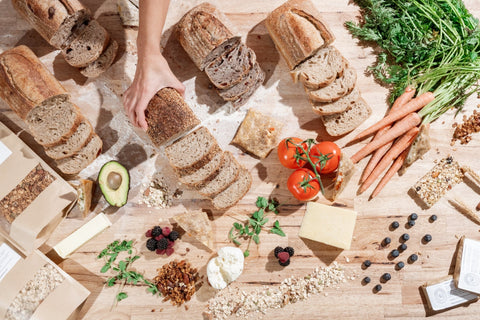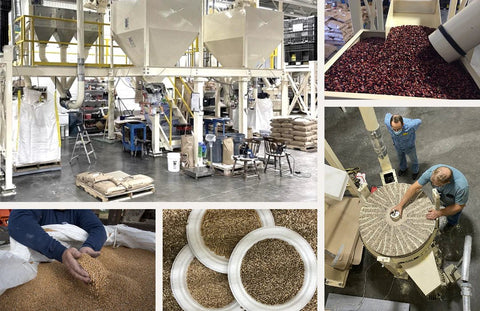Pure Ingredients + Sourdough Method = Good Bread
The basic requirements for a great bread are pure ingredients and use of the sourdough method. If you get these two right even a little bit, it will lead to a good bread. To make a great bread, you'll also need to get knowledgable on specific wheat varieties, flours, and have a great understanding of dough fermentation and the impact it has on bread. Let's look at ingredients and method separately.
Ingredients.
The simplest way to figure out if the bread has proper ingredients is if it is made of just flour, water, and salt (and add-ons if flavored bread such as cranberry, etc.). I believe that flour is the single most important ingredient in bread making so pay close attention to it and see if it is full grain or enriched.
Although I will go into details on flours on a later post, I'd like to introduce some basics. Flour is either milled as a whole grain or it is first separated into components (germ, endosperm, bran) and then milled separately.

When the whole grain is milled we get a much better flour as it is a mix of the three components and it keeps all of the nutrients present in the wheat berry. For lighter flour, mills sift the flour and extract a % of it which is why you see "extraction rate" on flours such as the one from Janie's Mill (which we use). Enriched flour is mainly made from the endosperm and then nutrients are added back, usually chemically derived nutrients. So if you see in the ingredient list "enriched wheat flour (flour, niacin, reduced iron, ...), you should know that they've used an industrial flour that is good for the producer and not so good for you as the consumer of the product. Of course there are a lot worse things done to flours such as bleaching, bromating, and more.

The same rule applies when you continue reading the ingredient list, including for the add-ons such as dried fruits.
Method.
The method used is arguably even more important than the ingredients when it comes to bread making, which is why there are many artisanal bakers that use enriched flour and get away with it. For thousands of years bread was made using only one method which we call the "sourdough" method, or bread made with a natural levaining agent also known as starter.
This method was probably the reason we as humans started eating bread as it made flour easily digestible. This process requires the dough to ferment slowly over an extended period of time (typically over 24 hours) and break down the gluten, and in the process develop the flavor we know and love.
But how can you recognize if the bread was made using the sourdough method?
If you're in a supermarket and the bread is not made locally, chances are it isn't. If you're in a bakery, just ask and hope that they'll be honest. If you're shopping online from a bakery, read information about their process and if necessary ask customer support.
There's also a texture that is unique to real sourdough and that typically includes a thicker and crunchier crust and a heavier and moist crumb. Real sourdough is heavier so if you compare 2 loaves of the same size, most likely the sourdough will weigh more (possibly double that of the industrial).
Another aspect is how you feel after you consumer the bread. Many consumers report that when they eat quick breads they feel bloated and heavy, and don't have that issue when eating sourdough. Also, there are many gluten intolerant people that are perfectly fine consuming sourdough bread.
And last but not least, consider the bread's shelf life. If the bread becomes too dry on day 1 and inedible, then there's a good chance that it was made using quick bread techniques and not sourdough. If the bread lasts more than 10 days, it is most likely due to added preservatives which is even worse. Sourdough bread lasts about 7 to 8 days under the proper keeping conditions, and it is most flavorful on days 2, 3, and 4.
__________________________________________
Organic Stone Milled Flour
+
Proper Use of Sourdough Method
=
Great Bread
__________________________________________

I will write more about the process of sourdough bread and some of the variations used by bakers and why we support or do not support the variations, but hope that this article gives you sufficient information for now.






Comments (1)
Thanks for this :)